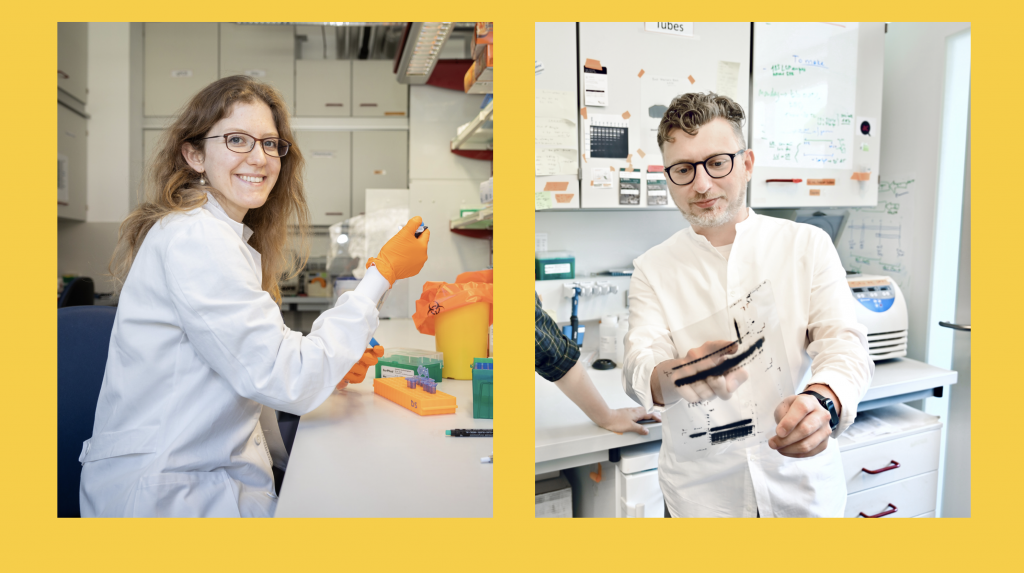New FWF project for Davide Seruggia and Ana Kutschat to decode risk factors for childhood leukemia
(Vienna, 31.10.2022) On hot track! Davide Seruggia and Ana Kutschat from St. Anna Children’s Cancer Research Institute (St. Anna CCRI) focus on new epigenetic factors associated with risk of developing childhood leukemia. The mechanisms of leukemia-predisposing mutations are now to be clarified as part of a recently approved FWF Stand-Alone project.
Our genome consists of genes that contain the blueprints to build our proteins, but also of non-coding elements whose functions are in some cases still unexplored. While mutations at genes are relatively easy to detect and study, the non-coding regions are much more difficult to investigate. Sequencing of large cohorts of patients showed that alterations in several non-coding regions are associated with B-cell-derived acute lymphoblastic leukemia (B-ALL), yet the mechanism disrupted in these mutations are unclear.
Impaired hematopoiesis makes susceptible to leukemia
Davide Seruggia and Ana Kutschat, principal investigator and postdoctoral fellow in the Pediatric Leukemia Biology team at St. Anna CCRI, focus their work on clusters of sequence variants (or Single Nucleotide Polymorphisms, SNPs) associated with leukemia. Specifically, they aim to investigate the downstream effects of those variants on the expression and functions of the linked genes. “We are very pleased to have been awarded this FWF project. It will allow us to test our hypotheses and investigate how epigenetic modifiers are required to fine-tune the development of B-cell,” says Ana Kutschat. “Applying cutting edge technologies, we will understand how subtle changes in the epigenetic machinery of a cell result in an accumulation of immature B-cell progenitor cells and consequently in a higher susceptibility to leukemia,” explains Davide Seruggia.

Read more about the research group: